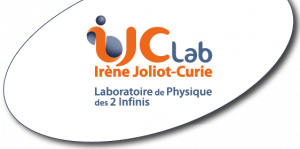The Engineering pole of IJCLab is one of the essential pillars of the laboratory, ie a manufacturer laboratory for the large complex detectors in our disciplines. It is able to design and build the instruments for the future of IJCLab research fields. It gathers remarkable technical skills and expertise in electronics, IT/computing, instrumentation and mechanics.
It is organized into four departments according to these four activities. Each of these departments is itself subdivided into services according to a structure taylored to the size of the pole, which includes around 175 people. The pole is managed by a steering committee which includes the director of the pole and the four department heads. The pole can also count on the support of two project managers, the first in relation with the IJCLab project management unit for monitoring projects and ensuring the coordination with this unit; the second with missions of business expertise, relations with Université Paris-Saclay and technological prospects.
While ensuring the continuity of projects, the pole is constantly nurtured by the new challenges of fundamental research. It is a necessary condition for maintaining the creativity and technicality of its staff. The laboratory operates following a matrix structure with a close proximity between the technical teams and the research groups. It brings together very varied job profiles and it has the ability to combine versatility and specialization and make them coexist harmoniously. Among the main projects under development, we can cite major contributions in the LHC upgrades for CERN in Geneva (ATLAS ITK, Alice Dimuon, LHCb…). The pole with the laboratory is also involved in the vast majority of nuclear physics projects of the moment (GRIT, AGATA…). Many projects are in the maturation or definition phase such as the Litebird satellite with CNES, the Neutrino CUPID project at Gran Sasso, or the NuBall2 campaign with the Transnational Access ALTO accelerator in Orsay. The pole manages several technical platforms including the Virtual Data data center and the PSI platform.
The engineering division has a strong interaction with the other IN2P3 laboratories through various networks: Mechanics, Electronics, Photodetectors, Semiconductor detectors, Computer Network of IN2P3 and CEA/IRFU…
Finally, the pole has a strong activity in terms of knowledge transfer through numerous courses and the hosting of interns of all levels.























